How to avoid falling for scams like "Activate Your McAfee Antivirus License"
![]() Written by Tomas Meskauskas on (updated)
Written by Tomas Meskauskas on (updated)
What kind of scam is "Activate Your McAfee Antivirus License"?
After analyzing this scam, we have found that it involves deceptive websites and a file crafted to generate misleading pop-ups (masquerading as warnings from legitimate software) on Windows. Users should exercise caution to avoid falling victim to these tactics, as they can lead to potential security risks, financial losses, and other issues.
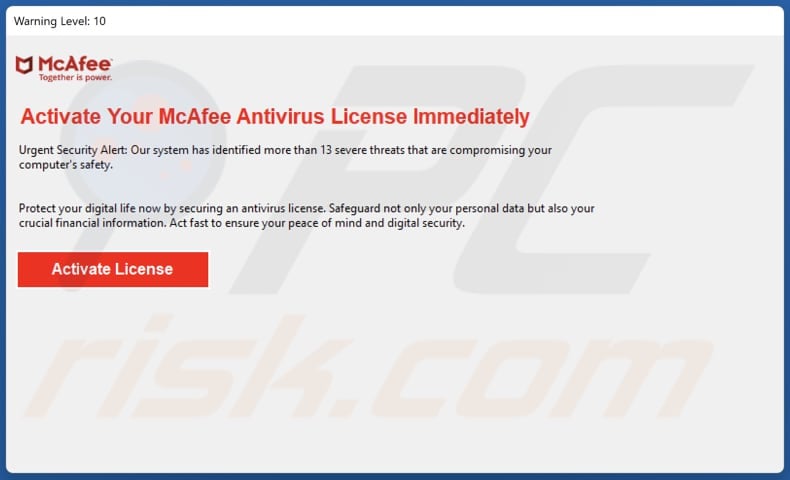
"Activate Your McAfee Antivirus License" scam in detail
We have uncovered deceptive websites crafted to showcase counterfeit warnings (pop-ups) alleging that the user's computer is endangered (infected with over 13 threats), prompting them to click the "Update Now" button to acquire a purported new version of McAfee antivirus software. These sites aim to deceive users into downloading a file engineered to produce fake alerts.
After executing the downloaded file, a new entry called "gagarin" is added to the list of startup applications. The "gagarin" application generates fake pop-up windows masquerading as McAfee alerts. These pop-ups pressure users to activate their McAfee antivirus license promptly. Clicking the "Activate License" button within these pop-ups directs users to an affiliate link.
The website that opens is a genuine McAfee site but with an affiliate's ID embedded in its URL. This indicates that the scammers behind the scam are attempting to deceive users into buying a McAfee subscription through their scheme. It is crucial to understand that McAfee is a legitimate software product, and its developer is not involved in the scam in any way.
Scammers often utilize deceptive schemes like the one described to profit from affiliate programs. These schemes exploit users' trust in well-known brands like McAfee, tricking them into believing they are engaging with legitimate software or security alerts. However, the ultimate goal for scammers is to drive traffic through their affiliate links and generate revenue for themselves through affiliate commissions.
| Name | Activate Your McAfee Antivirus License fake warning |
| Threat Type | Scam, Social Engineering, Fraud |
| Fake Claim | A computer is infected with more than 13 threats |
| Disguise | Legitimate warning from McAfee antivirus |
| Related Domain | protect-your-pc[.]com |
| Detection Names (protect-your-pc[.]com) | alphaMountain.ai (Suspicious), Bfore.Ai PreCrime (Suspicious), CRDF (Malicious), Kaspersky (Phishing), Full List Of Detections (VirusTotal) |
| Distributed Unwanted App | gagarin |
| Detection Names (gagarin) | Jiangmin (Trojan.Generic.hsdry), Full List Of Detections (VirusTotal) |
| Symptoms | Fake error messages, fake system warnings, pop-up errors, hoax computer scan. |
| Distribution methods | Compromised websites, rogue online pop-up ads, unwanted applications. |
| Damage | Loss of sensitive private information, monetary loss, identity theft, possible malware infections. |
| Malware Removal (Windows) | To eliminate possible malware infections, scan your computer with legitimate antivirus software. Our security researchers recommend using Combo Cleaner. |
Conclusion
In conclusion, the described scam highlights the deceptive tactics employed by cybercriminals to profit from affiliate programs. By creating fake alerts and websites resembling legitimate software products like McAfee, scammers lure unsuspecting users into clicking on affiliate links under the guise of security threats.
This serves as a reminder of the importance of remaining vigilant online and verifying the legitimacy of software alerts and websites before taking any action.
How did I open a scam website?
Users may click on links in deceptive emails, social media posts, or online advertisements that appear legitimate but actually lead to scam websites. Also, scammers use search engine optimization techniques to ensure their fraudulent websites appear in search results for popular topics or products.
Moreover, scammers may employ social engineering tactics, such as fake alerts or warnings, to trick users into visiting scam websites. Web pages associated with rogue advertising networks (e.g., torrent sites), adware-type apps, and notifications from unreliable websites are also used to promote scams.
How to avoid visiting scam pages?
Steer clear of clicking on suspicious links in emails, social media posts, online ads, and pop-ups. Refrain from accepting notifications from dubious websites. Obtain apps and files from trustworthy sources like official websites or app stores. Exercise caution with URLs containing misspellings or unusual characters.
Install reputable antivirus and anti-malware software on your devices and ensure they're regularly updated. Stay vigilant about common online scams and methods used by cybercriminals. If your computer is already infected with unwanted apps, we recommend running a scan with Combo Cleaner Antivirus for Windows to automatically eliminate them.
The appearance of the website designed to download "gagarin" app (GIF):
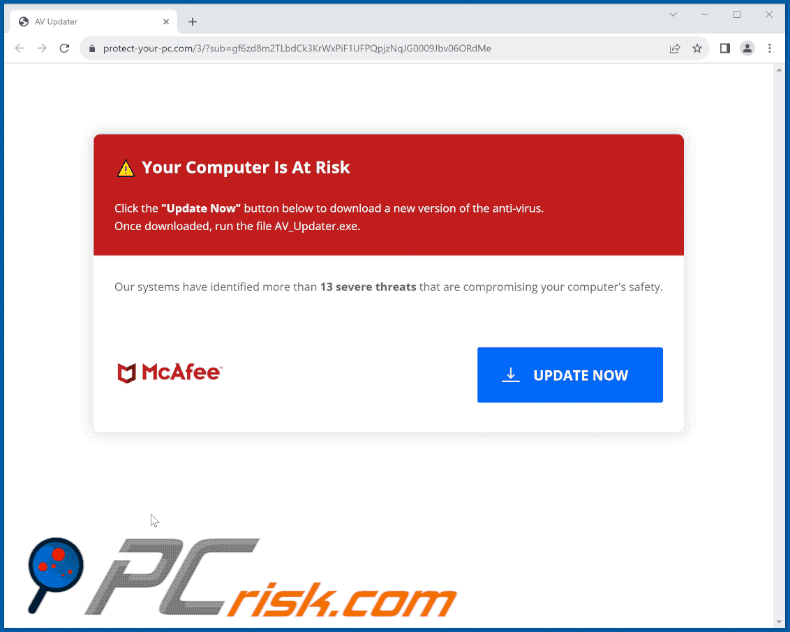
Screenshot of this website:
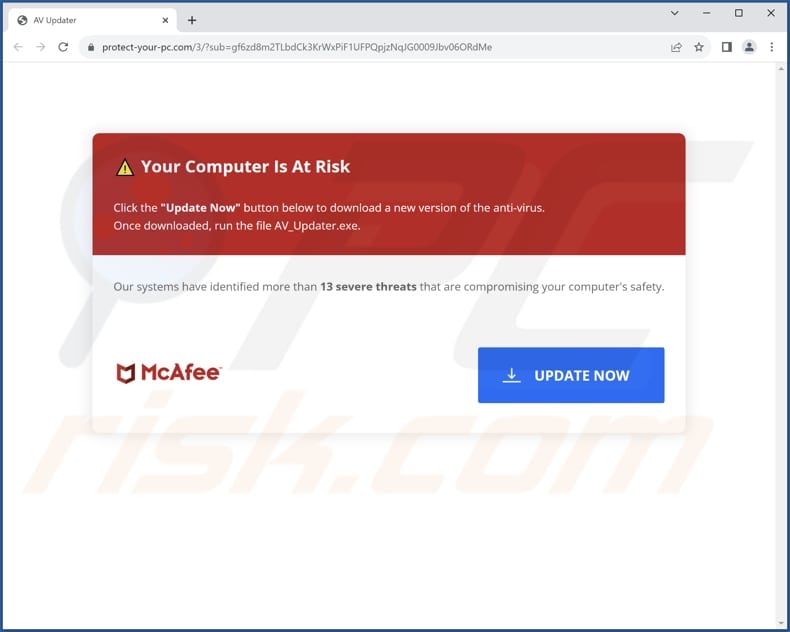
Instructions on how to eliminate "gagarin" from the operating system:
1. Open the Task Manager, find the "gagarin" process, select it and click the "End task" button:
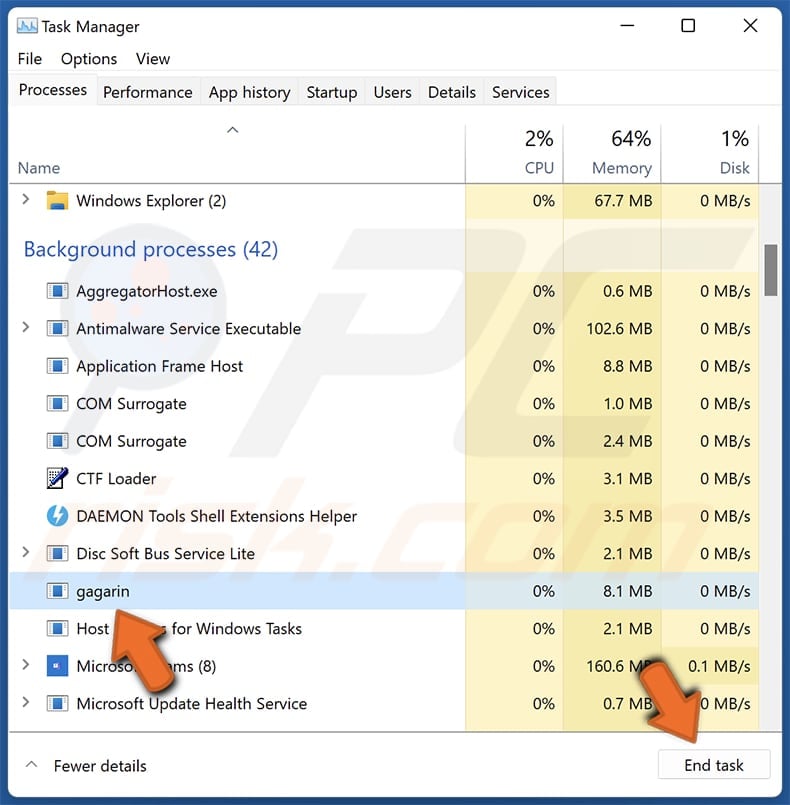
2. Locate the "gagarin" file in the "C:\systemFiles" folder and delete it:
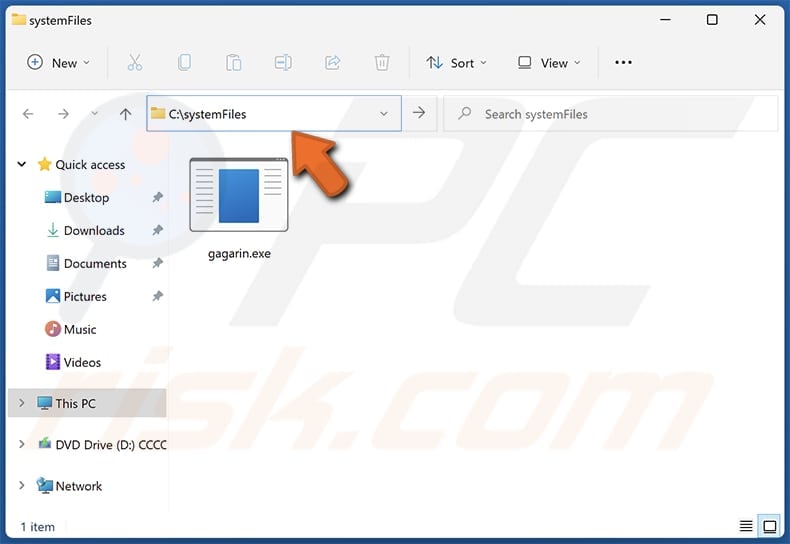
3. Locate "gagarin" in the list of Startup Apps and disable it (toggle to "Off"):
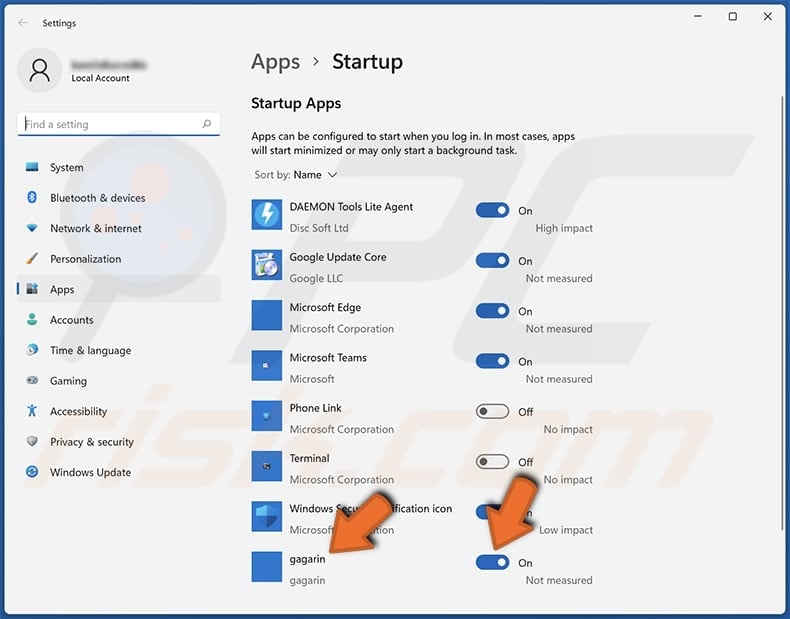
4. Find "gagarin" in "C:\Users\[user_name]\AppData\Roaming\Microsoft\Windows\Start Menu\Programs\Startup" folder (if not present, enable the display of hidden files) and delete it:
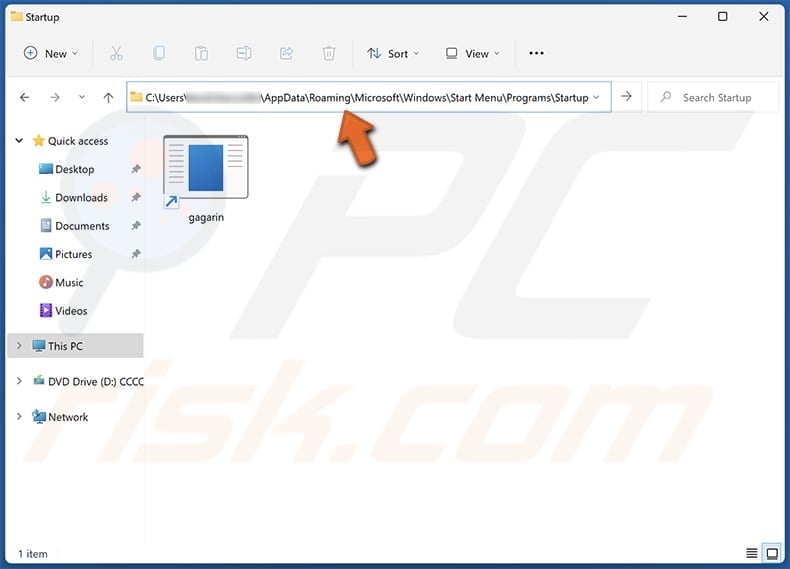
5. Restart your computer.
Instant automatic malware removal:
Manual threat removal might be a lengthy and complicated process that requires advanced IT skills. Combo Cleaner is a professional automatic malware removal tool that is recommended to get rid of malware. Download it by clicking the button below:
▼ DOWNLOAD Combo Cleaner
By downloading any software listed on this website you agree to our Privacy Policy and Terms of Use. To use full-featured product, you have to purchase a license for Combo Cleaner. 7 days free trial available. Combo Cleaner is owned and operated by Rcs Lt, the parent company of PCRisk.com read more.
Quick menu:
- What is Activate Your McAfee Antivirus License fake warning?
- How to identify a pop-up scam?
- How do pop-up scams work?
- How to remove fake pop-ups?
- How to prevent fake pop-ups?
- What to do if you fell for a pop-up scam?
How to identify a pop-up scam?
Pop-up windows with various fake messages are a common type of lures cybercriminals use. They collect sensitive personal data, trick Internet users into calling fake tech support numbers, subscribe to useless online services, invest in shady cryptocurrency schemes, etc.
While in the majority of cases these pop-ups don't infect users' devices with malware, they can cause direct monetary loss or could result in identity theft.
Cybercriminals strive to create their rogue pop-up windows to look trustworthy, however, scams typically have the following characteristics:
- Spelling mistakes and non-professional images - Closely inspect the information displayed in a pop-up. Spelling mistakes and unprofessional images could be a sign of a scam.
- Sense of urgency - Countdown timer with a couple of minutes on it, asking you to enter your personal information or subscribe to some online service.
- Statements that you won something - If you haven't participated in a lottery, online competition, etc., and you see a pop-up window stating that you won.
- Computer or mobile device scan - A pop-up window that scans your device and informs of detected issues - is undoubtedly a scam; webpages cannot perform such actions.
- Exclusivity - Pop-up windows stating that only you are given secret access to a financial scheme that can quickly make you rich.
Example of a pop-up scam:

How do pop-up scams work?
Cybercriminals and deceptive marketers usually use various advertising networks, search engine poisoning techniques, and shady websites to generate traffic to their pop-ups. Users land on their online lures after clicking on fake download buttons, using a torrent website, or simply clicking on an Internet search engine result.
Based on users' location and device information, they are presented with a scam pop-up. Lures presented in such pop-ups range from get-rich-quick schemes to fake virus scans.
How to remove fake pop-ups?
In most cases, pop-up scams do not infect users' devices with malware. If you encountered a scam pop-up, simply closing it should be enough. In some cases scam, pop-ups may be hard to close; in such cases - close your Internet browser and restart it.
In extremely rare cases, you might need to reset your Internet browser. For this, use our instructions explaining how to reset Internet browser settings.
How to prevent fake pop-ups?
To prevent seeing pop-up scams, you should visit only reputable websites. Torrent, Crack, free online movie streaming, YouTube video download, and other websites of similar reputation commonly redirect Internet users to pop-up scams.
To minimize the risk of encountering pop-up scams, you should keep your Internet browsers up-to-date and use reputable anti-malware application. For this purpose, we recommend Combo Cleaner Antivirus for Windows.
What to do if you fell for a pop-up scam?
This depends on the type of scam that you fell for. Most commonly, pop-up scams try to trick users into sending money, giving away personal information, or giving access to one's device.
- If you sent money to scammers: You should contact your financial institution and explain that you were scammed. If informed promptly, there's a chance to get your money back.
- If you gave away your personal information: You should change your passwords and enable two-factor authentication in all online services that you use. Visit Federal Trade Commission to report identity theft and get personalized recovery steps.
- If you let scammers connect to your device: You should scan your computer with reputable anti-malware (we recommend Combo Cleaner Antivirus for Windows) - cyber criminals could have planted trojans, keyloggers, and other malware, don't use your computer until removing possible threats.
- Help other Internet users: report Internet scams to Federal Trade Commission.
Frequently Asked Questions (FAQ)
What is a pop-up scam?
A pop-up scam involves the display of deceptive pop-up windows that trick users into taking fraudulent actions, often by impersonating legitimate software alerts or security warnings.
What is the purpose of a pop-up scam?
The purpose of a pop-up scam is to deceive users into taking harmful actions, such as downloading malware, providing remote access to computers, revealing personal information, or making payments.
Why do I encounter fake pop-ups?
You may encounter fake pop-ups due to various reasons, including visiting compromised or malicious websites, clicking on deceptive ads or links, or having unwanted software installed on your device.
Will Combo Cleaner protect me from pop-up scams?
Combo Cleaner is engineered to thoroughly scan each website you visit, with the ability to identify malicious ones. This includes sites designed to perpetrate pop-up scams, ensuring immediate warning and access restriction for your protection.

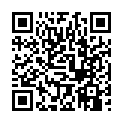
▼ Show Discussion